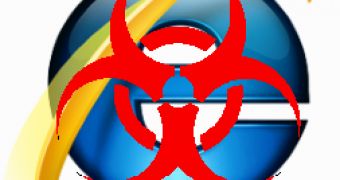While some of you might not use the Internet for reading and sending e-mails and, therefore, may not be too keen on my previous article, I'm sure that the following pieces of advice regarding browsing websites and using your instant messenger will surely be at least of some interest.
Let's start with the easy part: instant messaging. The rules resemble the ones of reading emails but, in this case, you haven't had the time to read part two, here's a little recap of some of the things you should keep in mind while using this type of software. Just as for emails, it's very probable that sooner or later you'll receive spam, unsolicited and unwanted messages, even while using an instant messenger. And by unsolicited and unwanted messages, I don't mean your annoying friend begging you to visit his Orkut/hi5 page, but something a bit more stressful and a lot more dangerous. I'm talking about messages from unknown persons inviting you to open dubious pictures / videos / websites and instead of a picture with Angelina Jolie, you get a very nasty virus.
It would be a good idea to ignore and then report as spam (if possible) the IDs from which you receive suspicious links in order to stay clear of them in the future and also keep them away from other users. The same goes for links in your friends' status messages: don't click them before taking at least a quick look at the address. You might find yourself on a webpage full of viruses or other type of malware content that could pose a serious threat to your online privacy. And allow me to repeat what I've already stated in my previous articles: if you don't see the virus, it doesn't mean it's not there!
As in the case of emails (and for that matter, any file received from another computer - through download, share, upload etc) remember to always scan the files your friends send you. Think of it this way: maybe your computer is clean, but are you sure theirs are? So, take a few minutes and read part one of this small tutorial that will help you decide which security software to install.
Now that we've covered the basics of instant messengers, let's head on the second part concerning the safety measures you should take while using a browser. First of all, if the whole Internet thing is something new to you or you're not very familiar with browser security, find yourself a "sidekick", a browser add-on to help you identify malicious websites like SiteAdvisor.
On the other hand, avoid installing useless browser toolbars. In most cases, these types of add-ons gather information about your online activity and may force changes on your browser without asking for your permission.
Secondly, remember the saying "not all that glitters is gold", so you really should ignore those ads tempting you with billion dollar winnings, amazing emoticons and even with buttons "begging" to be clicked.
Furthermore, avoid downloading and installing programs from websites you don't trust or, unlike Softpedia, do not guarantee and prove that the programs are tested and perfectly safe. Otherwise, you may end up on a website selling freeware programs or listing untested software that may pose a serious threat to your computer's security.
And last, but certainly not least, be very careful where you enter your passwords and therefore always make sure you manually type login addresses and you don't enter this type of information in applications that haven't been checked by an authority in computer software security like Softpedia.
In the end, Softpedia recommends a freeware utility that might very well make your life a lot easier and keep you safe from many of the security threats mentioned in this tutorial. WinPatrol warns you each time an application attempts to make important changes to your computer, some of them inadvisable, for example, changing your browser homepage, search engine, file associations, system startup, installing services or browser add-ons and so on.
As a conclusion, we hope that by respecting our pieces of advice and using WinPatrol plus a good antivirus, you'll stay clear of any serious Internet threat.

 14 DAY TRIAL //
14 DAY TRIAL //